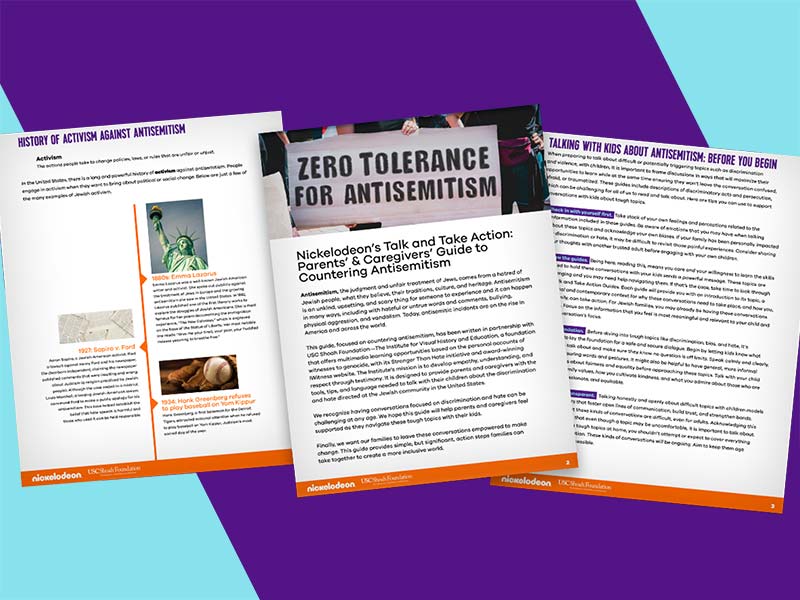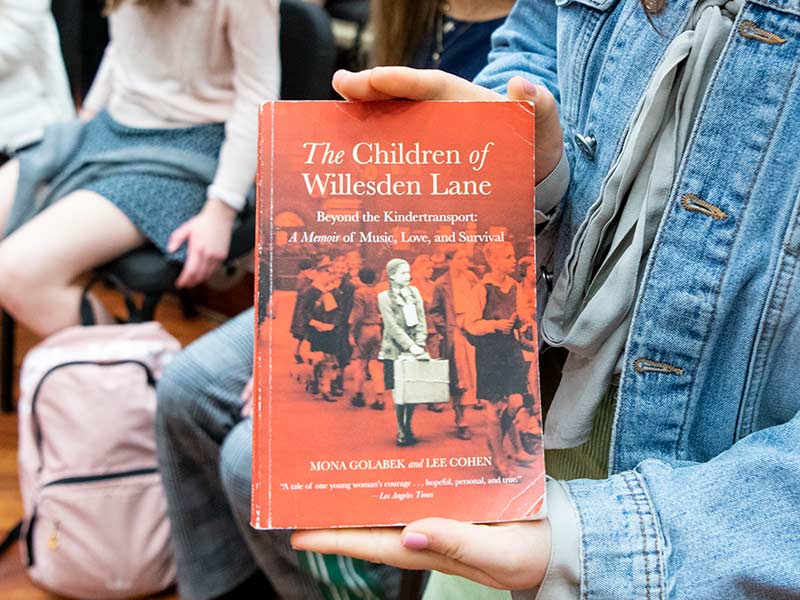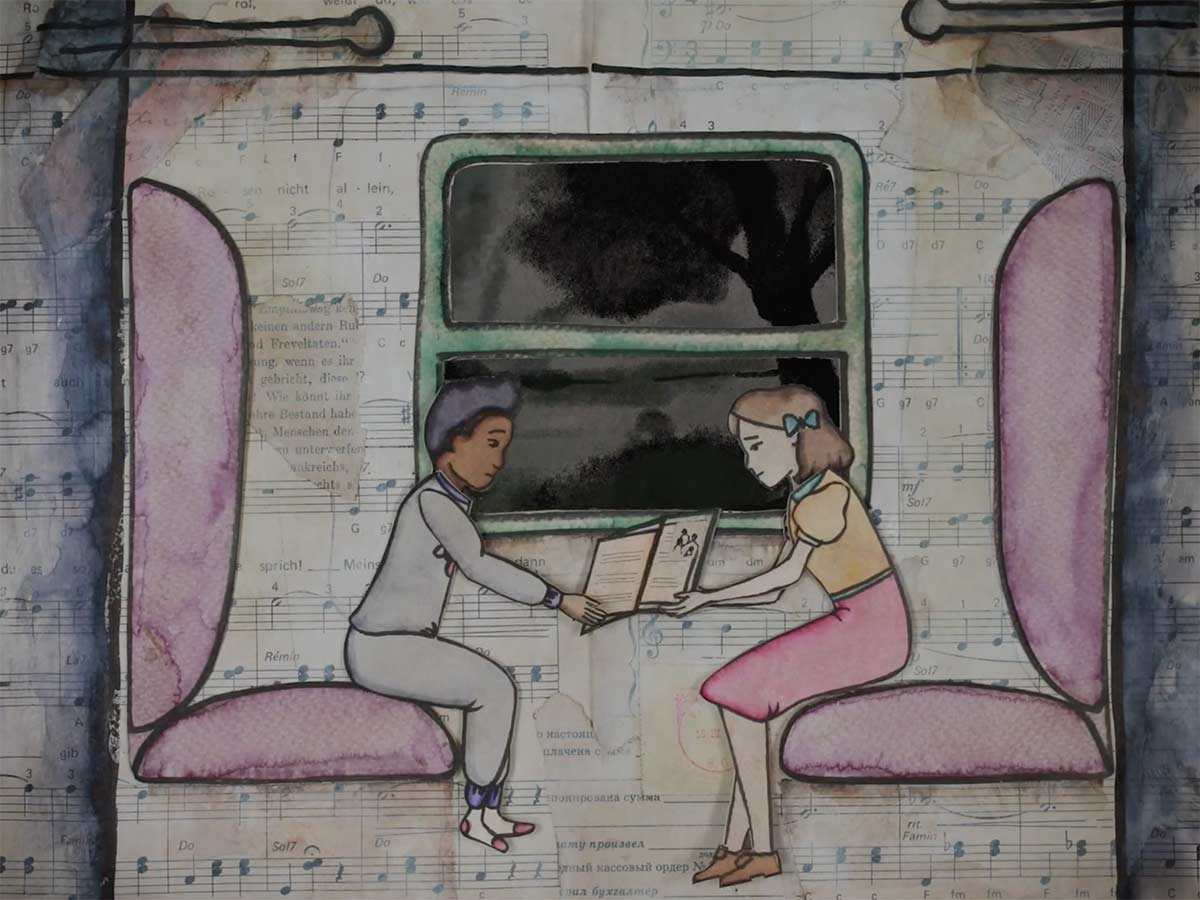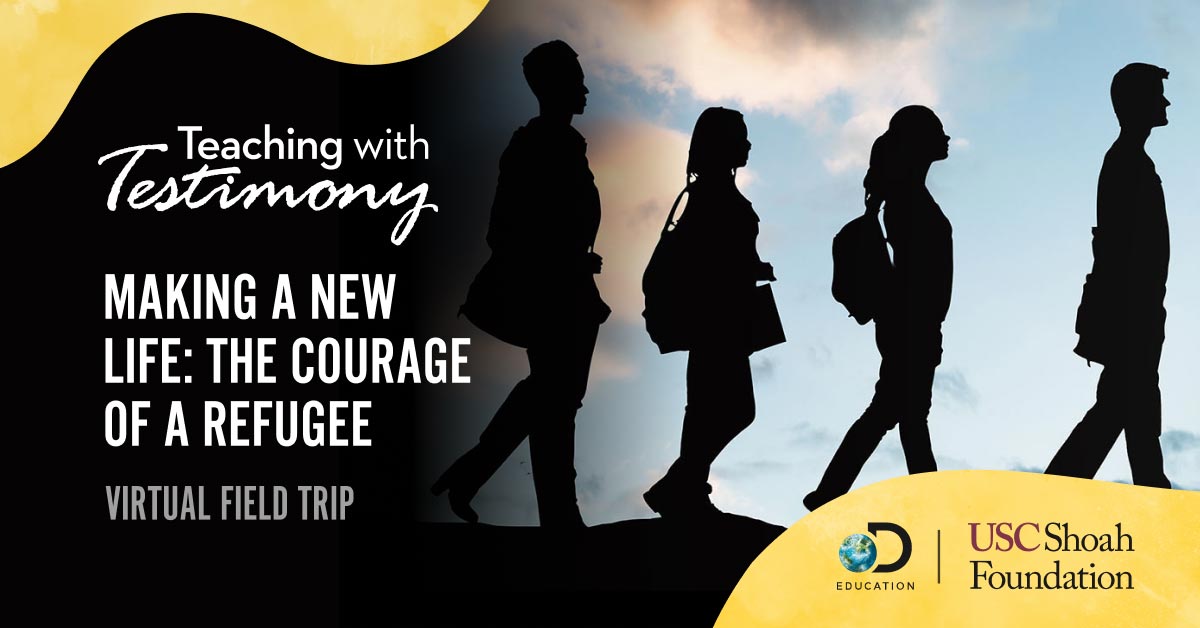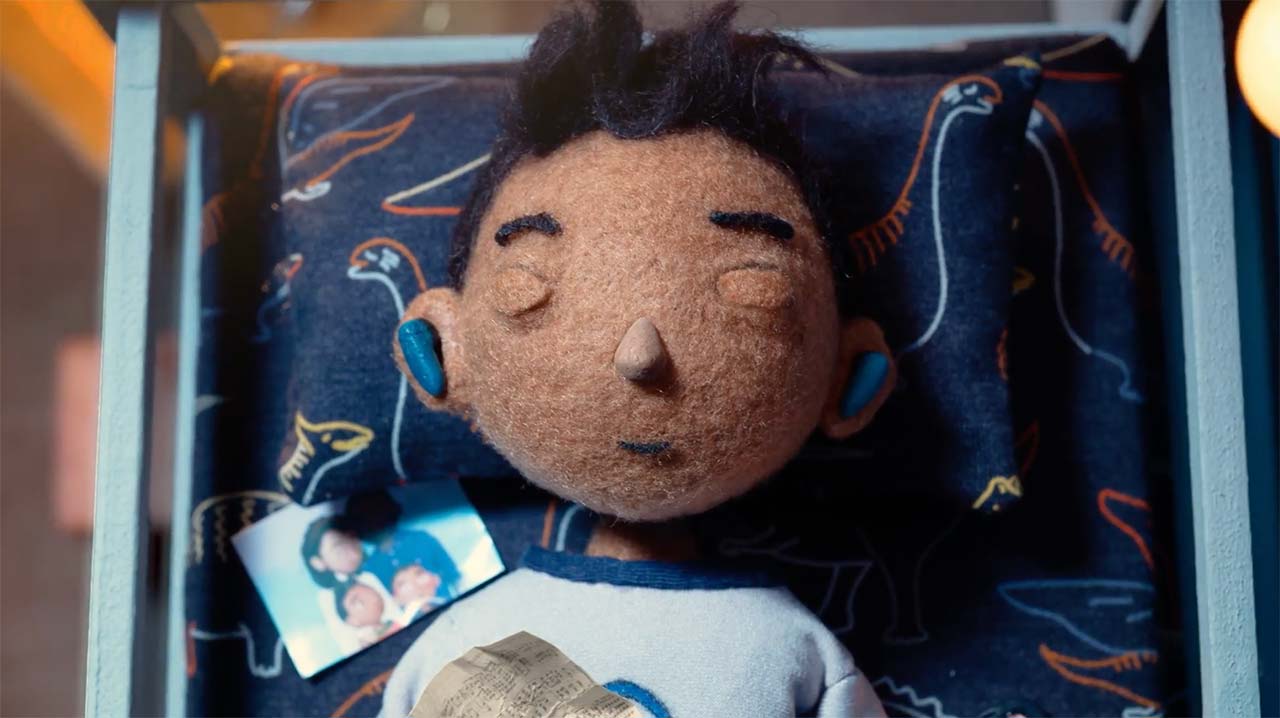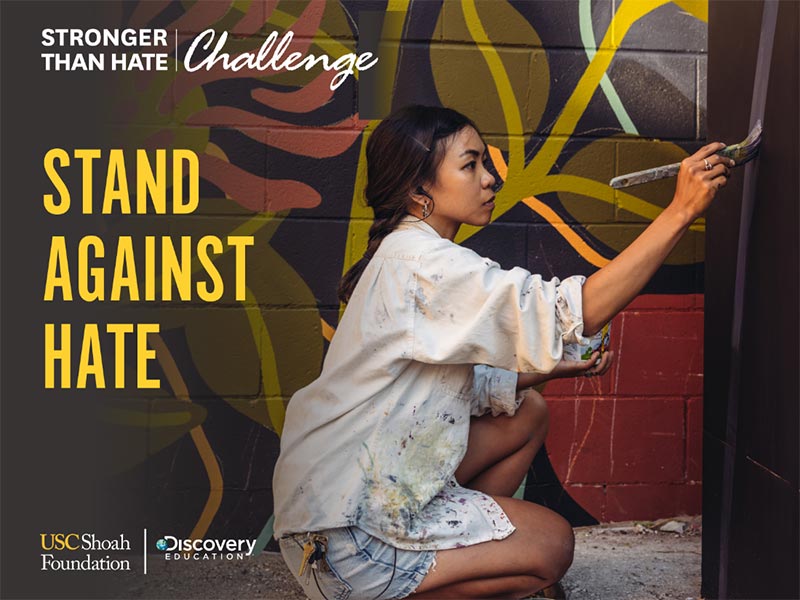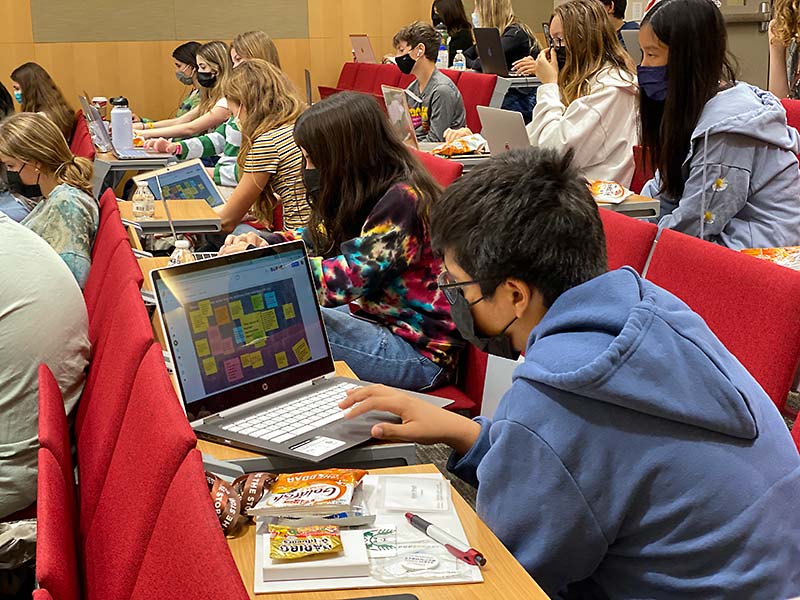Education News
New Guides to Countering Antisemitism Added to Nickelodeon Anti-Hate Series
USC Shoah Foundation and partners Nickelodeon and The Conscious Kid today launch a pair of Talk and Take Action: Guides to Countering Antisemitism that provide teachers and parents with content and…
Tuesday, December 21, 2021
Partnership with The Conscious Kid Producing Resources to Counter Antisemitism, Other Bias
USC Shoah Foundation and The Conscious Kid are partnering to develop and implement a series of grade K-5 resources and education initiatives to counter antisemitism and raise awareness to appreciate…
Monday, December 13, 2021
USC Shoah Foundation, The Willesden Project Launch Music Dreams Animated Short
USC Shoah Foundation and The Willesden Project today launch the premiere of Music Dreams, an animated short film story telling the story of Lisa Jura, a young Holocaust survivor who in 1938 escaped…
Friday, December 10, 2021
The Willesden Project commemorates Kindertransport and hails courage of refugees with virtual field trip
It was 83 years ago this week that 13-year-old Lisa Jura boarded a Kindertransport train from Vienna to London, the first step in a journey that would be memorably depicted by her daughter Mona…
Tuesday, December 7, 2021
New Animated Film for Young Students Explores Refugee Displacement and the Power of Music to Inspire Hope, Healing
Today marks the 83rd anniversary of the arrival of the first Kindertransport to the United Kingdom. This rescue operation saved 10,000 child refugees from Nazi-occupied Europe.
As part of the…
Thursday, December 2, 2021
USC Shoah Foundation and Discovery Education Announce UK Winners of Stronger Than Hate Challenge
USC Shoah Foundation and Discovery Education have announced the winners of the United Kingdom category of the 2021 international Stronger Than Hate Challenge
First prize in the challenge was…
Monday, November 22, 2021
USC Shoah Foundation and Discovery Education Announce UK Winners of Stronger Than Hate Challenge
USC Shoah Foundation and Discovery Education have announced the winners of the United Kingdom category of the 2021 international Stronger Than Hate Challenge
First prize in the challenge was…
Monday, November 22, 2021
USC Shoah Foundation and Discovery Education Announce UK Winners of Stronger Than Hate Challenge
USC Shoah Foundation and Discovery Education have announced the winners of the United Kingdom category of the 2021 international Stronger Than Hate Challenge
First prize in the challenge was…
Monday, November 22, 2021
New Cohort of William P. Lauder Junior Interns Begins 2021-2022 Program
A cohort of forty-one new students and five returning Junior Intern Emissaries convened virtually on November 14 for the first session of the 2021-2022 William P. Lauder Junior Internship Program.
…
Friday, November 19, 2021
New Cohort of William P. Lauder Junior Interns Begins 2021-2022 Program
A cohort of forty-one new students and five returning Junior Intern Emissaries convened virtually on November 14 for the first session of the 2021-2022 William P. Lauder Junior Internship Program.
…
Friday, November 19, 2021
